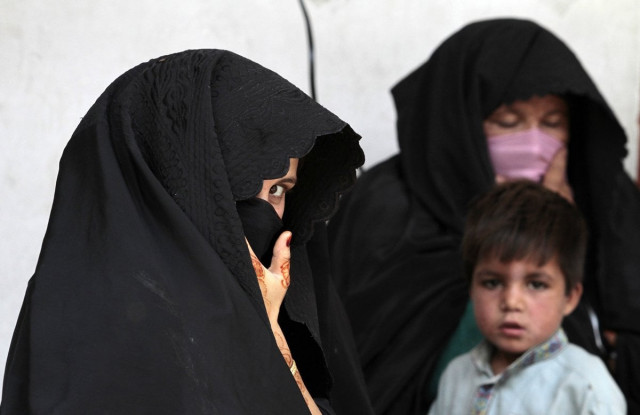State of malnutrition
A multi-pronged approach is needed that tackles malnutrition.

Unless immediate steps are taken to tackle this issue, Pakistan will miss one of the major MDGs by a long shot to its own detriment. PHOTO: Reuters
The statistics indeed paint a sorry picture: nearly half of Pakistan’s women and children suffer from malnutrition, while around 1.5 million children face acute malnutrition. Forty per cent of children are underweight and a third of child deaths are associated with malnutrition. Micronutrient deficiencies are common, with 51 per cent of women and 62 per cent of children under five estimated to be anaemic. Malnutrition is believed to cost Pakistan two to three per cent of its GDP.
While international donors may be losing interest, it is regrettable that the political will to tackle this issue also seems to be missing. Since malnutrition in Pakistan is linked to poverty and the consumption of inadequate quantities of food with low nutrition levels, the government needs to lay emphasis on poverty reduction programmes. A multi-pronged approach is needed that tackles malnutrition through health, education, nutrition and agricultural initiatives. Beyond that, the government needs to look into the distribution and storage systems that may be leading to shortages. The role of middlemen in this regard can be destructive to production. Not only should the government assess the viability of a subsidy programme for farmers, it should also educate them and provide them adequate infrastructure to market their produce. Unless immediate steps are taken to tackle this issue, Pakistan will miss one of the major MDGs by a long shot to its own detriment.
Published in The Express Tribune, June 25th, 2013.
Like Opinion & Editorial on Facebook, follow @ETOpEd on Twitter to receive all updates on all our daily pieces.














COMMENTS
Comments are moderated and generally will be posted if they are on-topic and not abusive.
For more information, please see our Comments FAQ